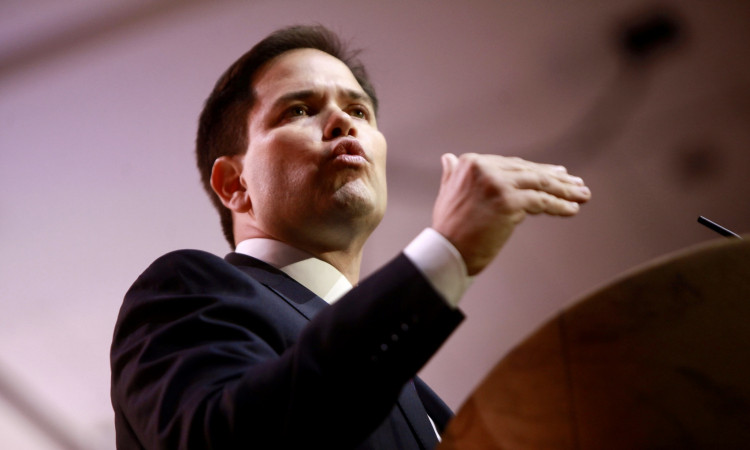High-stakes peace negotiations aimed at brokering a ceasefire in Ukraine collapsed Wednesday after U.S. Secretary of State Marco Rubio and special envoy Steve Witkoff abruptly withdrew from a planned summit in London, upending hopes for progress just days before President Donald Trump's 100-day milestone in office.
Ukrainian officials, including presidential chief of staff Andriy Yermak, Foreign Minister Andrii Sybiha, and Defense Minister Rustem Umerov, arrived in London expecting ministerial-level discussions with Western allies. But following Rubio and Witkoff's withdrawal, the British Foreign Ministry confirmed the talks were downgraded to a working-level format.
"Despite everything, we continue working for peace," Yermak wrote on X after landing in the U.K. capital.
The Trump administration has spent weeks intensifying efforts to bring Kyiv and Moscow to the table, following campaign pledges by Trump to end the war swiftly. But the absence of two top American envoys sent signals that Washington may be recalibrating its role. "This is not just about diplomacy fatigue. It also signals a hard pivot: the U.S. is not positioning itself as a neutral mediator," said Orysia Lutsevych, deputy director of Chatham House's Russia and Eurasia Programme.
State Department spokesperson Tammy Bruce cited "logistical issues" for Rubio's last-minute change in plans, a day after signaling his attendance. Witkoff was also confirmed absent by a European diplomat, though Trump's other envoy, Keith Kellogg, remained scheduled to meet with the Ukrainian delegation.
According to reports from the Financial Times and other outlets, a proposed peace framework discussed in prior sessions would involve U.S. recognition of Russia's annexation of Crimea and potential lifting of EU sanctions in exchange for a freeze of fighting along current frontlines. Both Kyiv and European leaders reportedly rejected the deal.
"There's nothing to talk about here," Ukrainian President Volodymyr Zelenskyy said Tuesday. "This is against our Constitution."
The London meeting was initially planned as a platform for Ukraine's allies, including France and Germany, to finalize commitments on security guarantees and reconstruction projects. French Foreign Minister Jean-Noël Barrot later canceled his attendance, citing a scheduling conflict.
Zelenskyy's rejection of territorial concessions highlights deep divisions over possible settlement terms. "I think it will be extraordinarily difficult, bordering on political suicide, for [Zelenskyy] to commit to paper on things like giving up Crimea," said Matthew Saville of the Royal United Services Institute. "The terms of any deal at the moment are not going to be particularly favorable to Ukraine."
Despite Wednesday's derailment, the Kremlin said it remains in contact with the Trump administration. Kremlin spokesperson Dmitry Peskov said, "Still, of course, there are many details regarding the settlement, a lot of details which need to be discussed, where we need to bring positions closer to one another."
Leaks from Russian and American sources have fueled speculation of behind-the-scenes maneuvering. According to the Guardian, a source close to the Kremlin said President Vladimir Putin had offered to freeze hostilities along existing lines in talks with Witkoff, but warned that the offer might be a ploy to extract broader concessions from Washington.
Trump, for his part, promised to unveil "full detail" on a potential peace framework "over the next three days."
As negotiations stall, the violence continues. On the same day the talks unraveled, Ukrainian officials reported a deadly Russian drone strike in Marhanets, killing nine people and wounding dozens, amid a wave of 134 drone attacks overnight.





